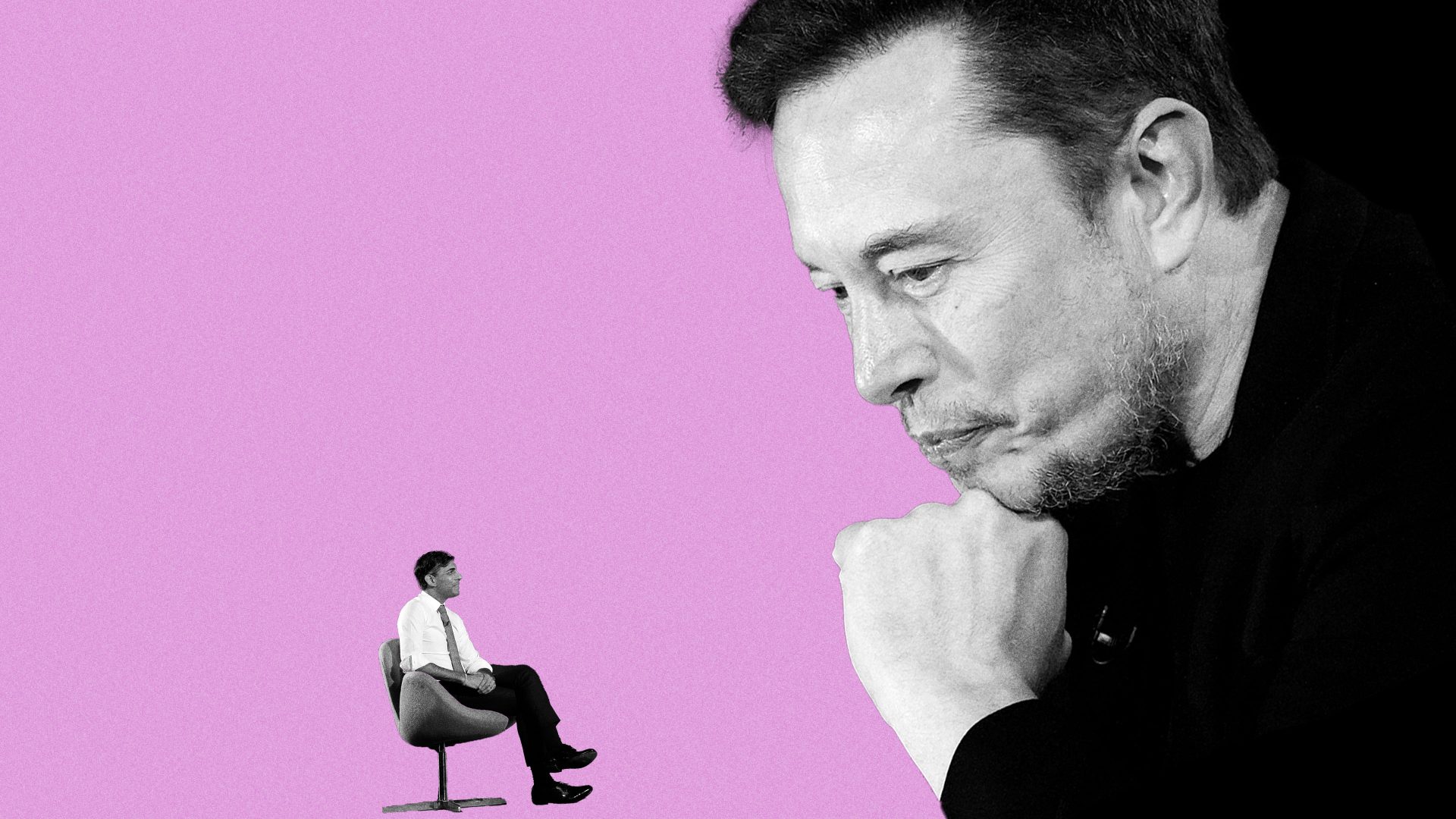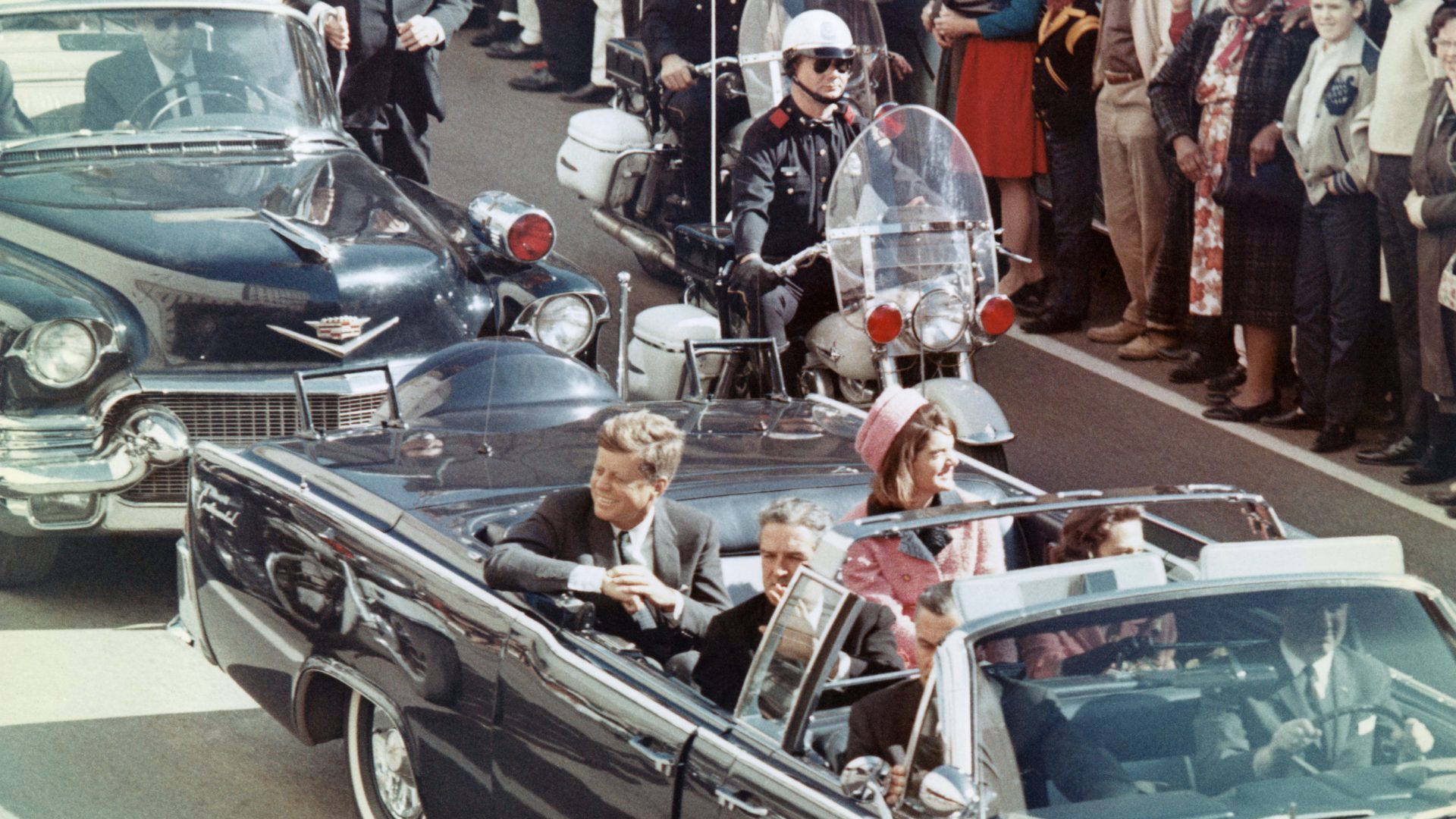I have been trying all week to imagine Theodore Roosevelt hosting a public Q&A with Andrew Carnegie; or Margaret Thatcher interviewing John King, the swashbuckling chairman of British Airways; or Tony Blair hosting a televised chat with Sir Richard Branson from his study in No 10. Nope: I can’t envisage it.
So what, exactly, was the present prime minister and first lord of the Treasury doing last week when he interviewed Elon Musk at Lancaster House? Could Rishi Sunak not see that the whole exercise demeaned the great office of state that he holds? Again, it would seem: nope.
From the very start (“Elon, thanks for being here”) via the clunky chat show patter (“gonna shift gears a little bit”) to Musk’s imperial verdict that the PM’s AI summit would “go down in history as being very important”, the whole exchange was toe-curlingly gruesome.
Inevitably, the tech super-mogul presented himself as the alpha male, with Sunak, in shirt sleeves and curtailed trousers, squirming excitedly in his chair like a cross between Will from The Inbetweeners (“briefcase wanker!”) and the luckless executive Amazon sends on to Newsnight to explain why its workplace conditions don’t amount to modern serfdom. When Musk told him that the brilliant Culture series of science fiction novels by the late Iain M Banks was “the best envisioning of an AI future”, it was all too clear that the PM had no idea what he was talking about.
The conversation lasted 40 minutes. For a much better, and more revealing interview with the force behind SpaceX, Tesla and the social media platform X (formerly Twitter), check out his appearance on The Joe Rogan Experience last week, which stretches to two hours and 41 minutes.
Rogan wears a silly blonde wig, tries and fails to shoot an arrow into Musk’s new bulletproof Cybertruck, and discusses pizza with him at length. But he also gets a lot more out of his guest than Sunak did: on his rivals, on the supposed “woke mind virus”, and, as it happens, AI, which Musk declares is “more dangerous than a nuclear bomb”. Isn’t as easy as it looks, is it prime minister?
Six years ago, I wrote in a book on post-truth that politics was fast becoming a branch of showbusiness; that Donald Trump, in particular, perceived “the public as an audience consuming entertainment rather than a civically engaged electorate”.
Since 2017, we have watched Boris Johnson leverage the comic persona he launched on Have I Got News For You to get to No 10 and now line up a gig as a presenter on GB News. We have seen Jair Bolsonaro capture the Brazilian presidency by appearing on knockabout TV shows and churning out gimmicky social media clips. And – lest we forget – we’ve watched as Matt Hancock finished third on I’m a Celebrity… Get Me Out of Here! and reached the final of Celebrity SAS: Who Dares Wins, where he lost to Gareth Gates.
Not that we should complain: we were warned that all this would happen. As long ago as 1967, the philosophical theorist Guy Debord wrote in Society of the Spectacle that
“the spectacle is the ruling order’s non-stop discourse about itself, its never-ending monologue of self-praise.”
In his classic book, Amusing Ourselves to Death (1985), the American cultural theorist Neil Postman observed that television “has made entertainment itself the natural format for the representation of all experience” and transformed culture into a “burlesque”. Four years later, Sir Tim Berners-Lee unveiled the World Wide Web, putting rocket-boosters under Postman’s prophecy.
In this new cultural universe, where emotion trumps fact, and performative charisma is valued more than competence and credentials, it is easy for progressives to feel disoriented (check out this week’s episode of The Two Matts, in which Matt Kelly and I recover from our night at a Jordan Peterson mega-rally). And it is certainly true that there is no pendulum that is going to swing conveniently back to evidence-based technocracy and old-school rationality. Politics as strobe-lit performance is here to stay.
But this new reality should be confronted as a challenge rather than a cause of despair. Why should the right have a monopoly upon popular persuasion, wit and showmanship? It is not necessary for progressives to ditch their values or policy objectives to recognise that they need to be conveyed using fresh, 21st-century delivery systems. Nor should shrewd politicians have to surrender their dignity, as Sunak so conspicuously did with Musk.
Consider the achievement of TNE’s own Alastair Campbell and his co-host on The Rest Is Politics, Rory Stewart, in filling the Royal Albert Hall last year (they’re back at the same venue on December 14).
When this newspaper hosted a panel discussion at the Union Chapel in Islington in June, we drew a crowd of 750. On Friday, I chaired a packed How To Academy event with the rock’n’roll philosopher of the left himself, Slavoj Žižek, a man who, in his activism and writing, shows that it is possible to be hugely entertaining, seriously intellectual and ethically committed, all at the same time. The auditorium was full of young people, eager for something new, energising and uninfected by the earnestness that has contaminated so much left-of-centre discourse.
Decency does not have to be dull. Indeed – as the Remain campaign demonstrated to dismal effect in 2016 – it cannot afford to be. The performances of the populist right are designed to reinforce the voters’ suspicion that politics can change nothing, that statecraft is a sham, and that we should just enjoy the low-rent carnival. In the words of Kurt Cobain: “Here we are now, entertain us”.
Progressives should aim much higher. Without stooping to cheap sensationalism, they need to embrace the hypermodern techniques and technology of performance and put them in the service of the common good. They need to think beyond traditional institutions to a world of fizzing networks, of platforms and stages (physical and digital) upon which the great political battles of this century will be played out.
Now more than ever, it’s show time. Pass the mic, Rishi.




